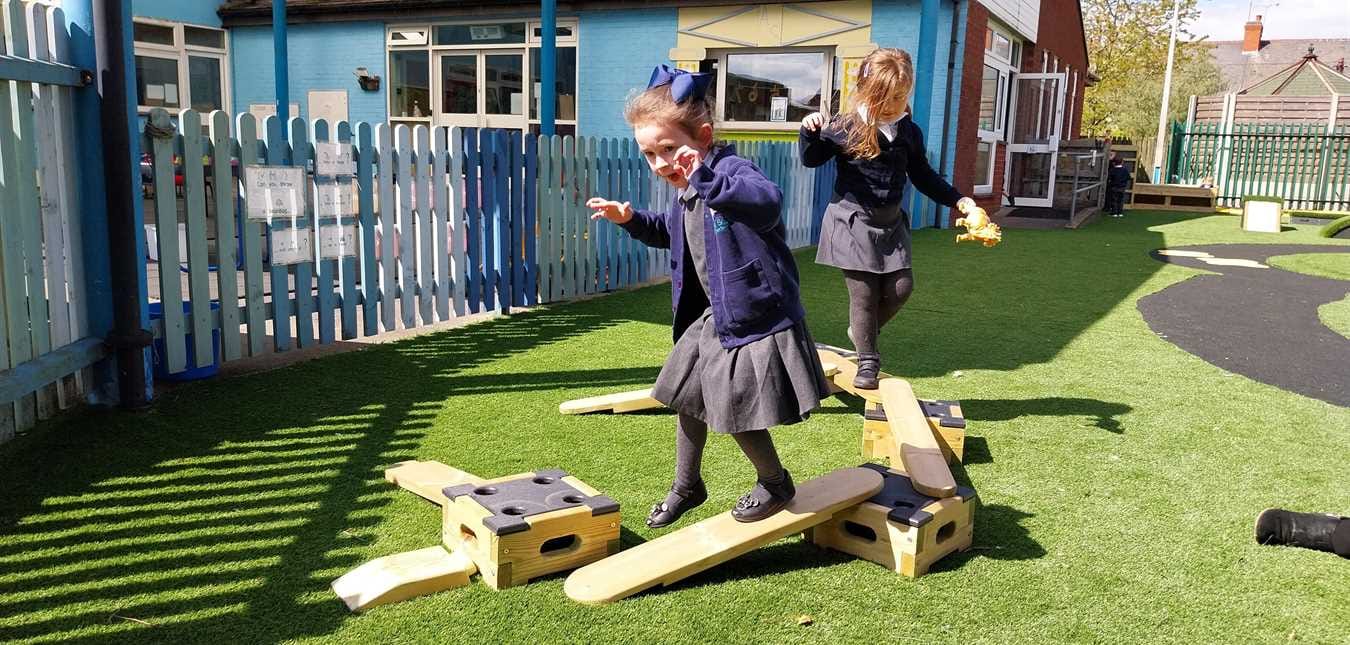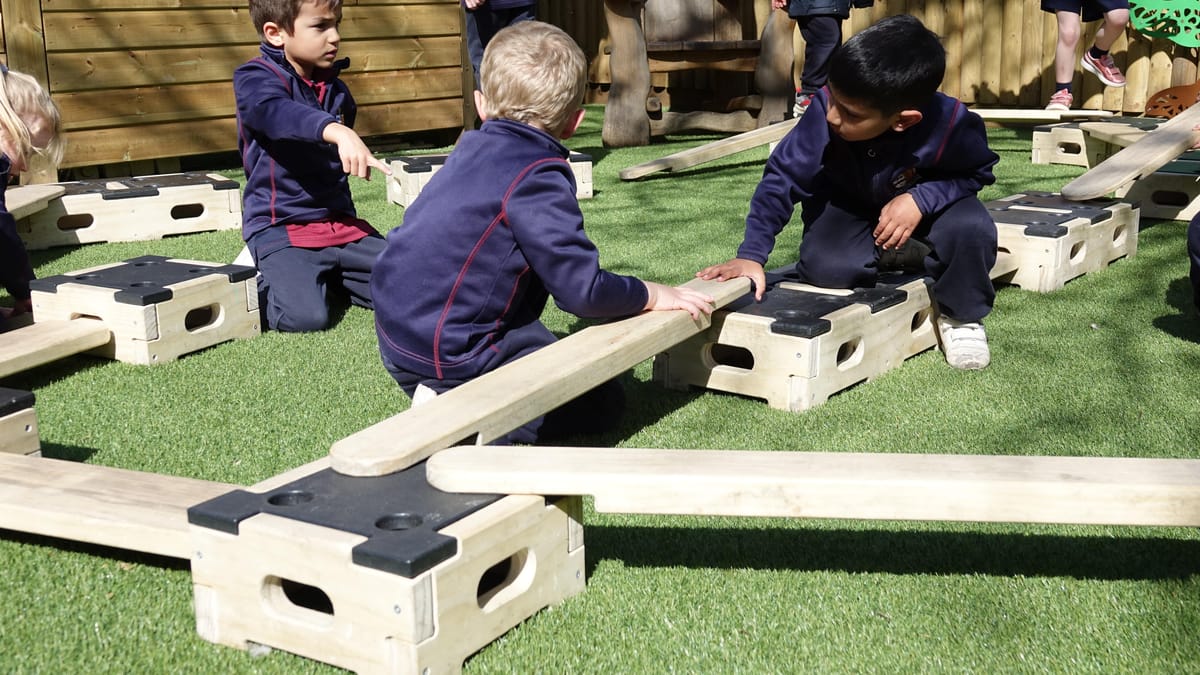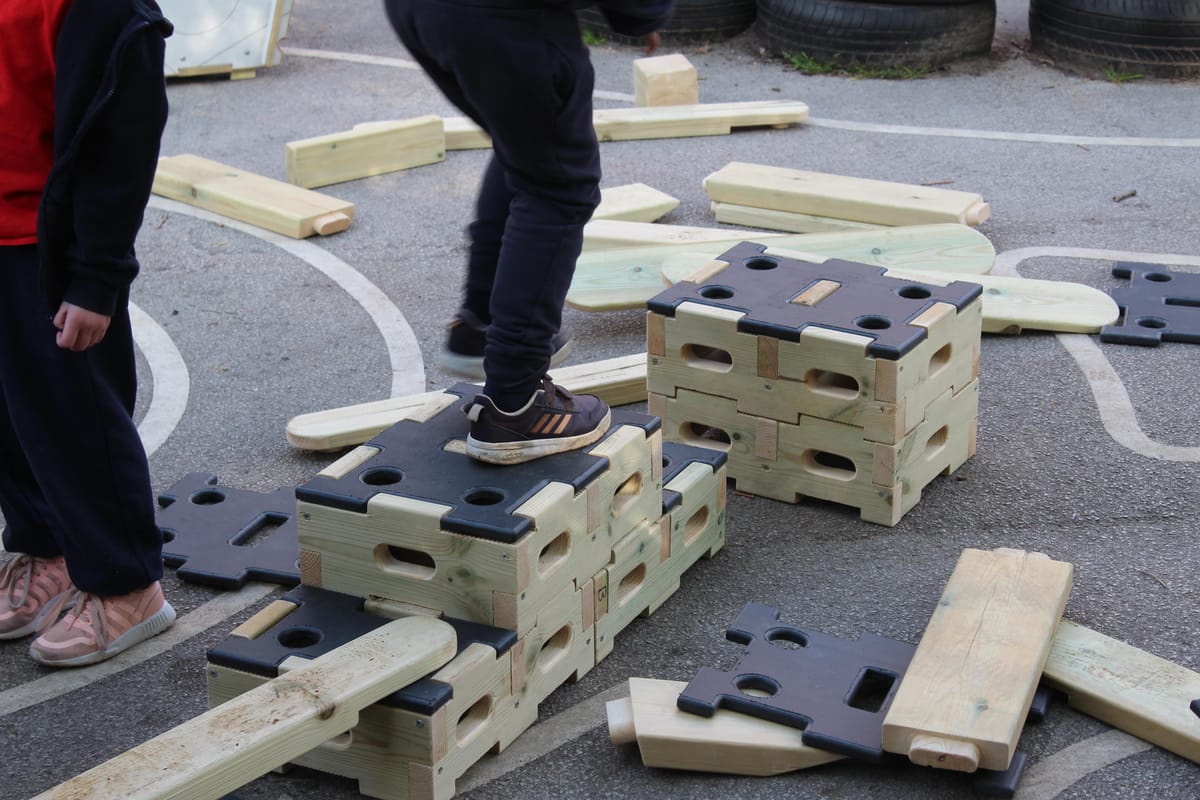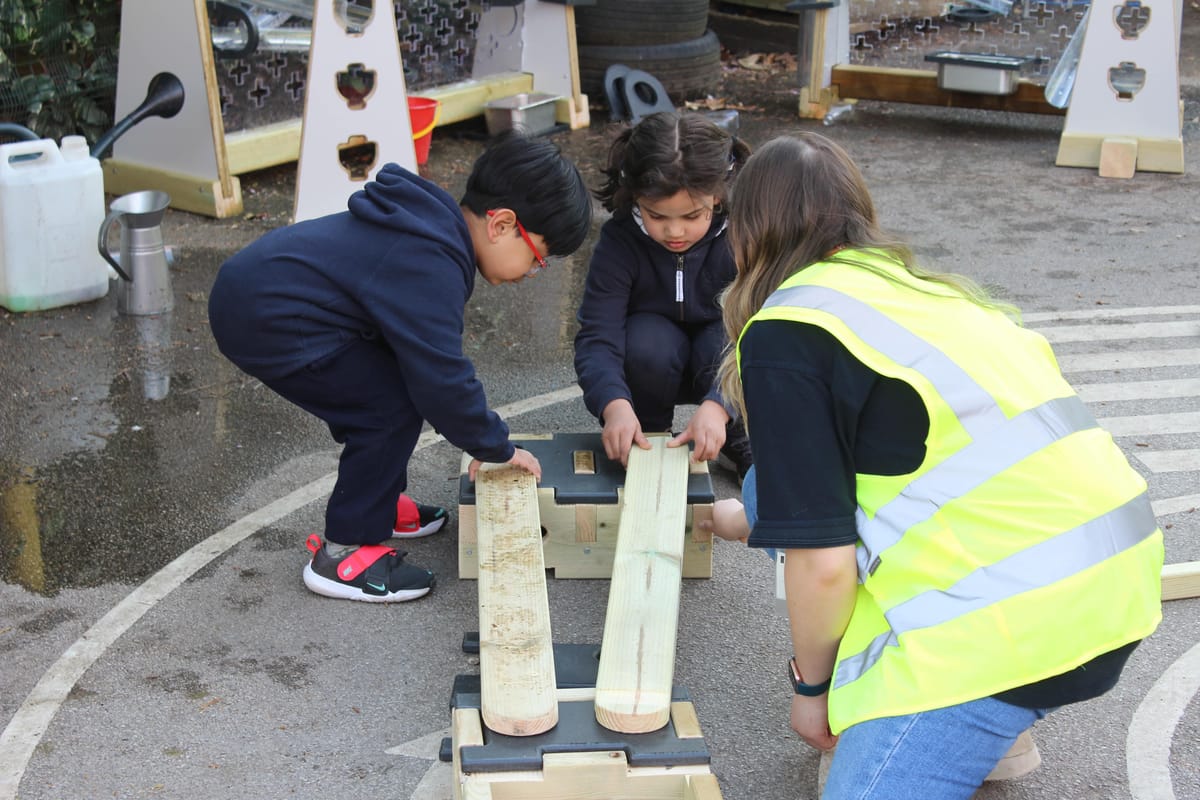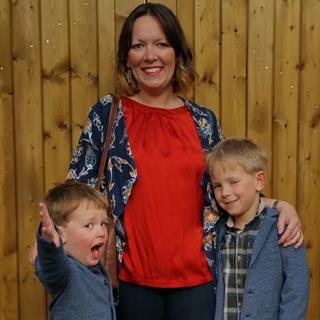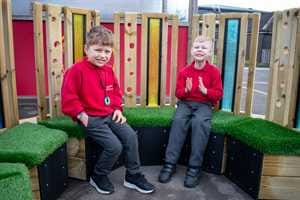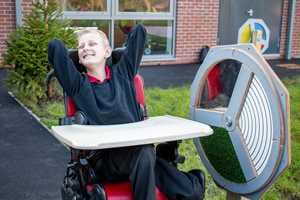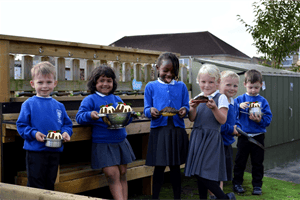
Special Educational Needs
Why SENCOs Love Pentagon's Play Builder Sets!
We love Construction Play! It’s the bricks and mortar of early childhood development when it comes to helping children to learn all sorts of important skills!
Through hands-on play using loose parts to design and build something new - planning and testing out imaginative ideas, using their motor skills to manipulate and manoeuvre materials, solving problems, working together and persevering when things don’t work first time - they’re laying the essential foundations of becoming creative and resilient young learners full of bright ideas.
And while these are some of the more obvious skills that children develop through physical Construction Play, it’s really interesting and important to realise the value that this type of learning activity has on childrens’ developing emotional regulation - especially for children with Special Educational Needs.
We’ve had some fantastic AND fascinating feedback from some of the schools that we work with, about how they have been using our Play Builder to help children with their self regulation. It’s become one of our most popular products in our Online Shop.
Receiving these insights from teachers as to how the Play Builder is being used effectively in everyday practice, helps us to put together our various Play Builder Packages for primary schools and nurseries.
We thought we’d share some of these insights with you in case you too are looking for more ideas and ways to help your students with developing their self-regulation. If you don’t have a Play Builder set yet, here’s just one of the many reasons why this might be a great product for your school.
What Actually is Self Regulation?
Self regulation is a person’s ability to tolerate any situation they might find themselves in. It’s how we manage our emotions and behaviour, body movements and reactions, when faced with any given situation. This becomes particularly poignant when faced with a situation we may find difficult.
It’s a bit like having an internal gauge. Think of a central heating system, where the thermostat tracks temperature, and turns the system on or off to maintain ideal conditions.
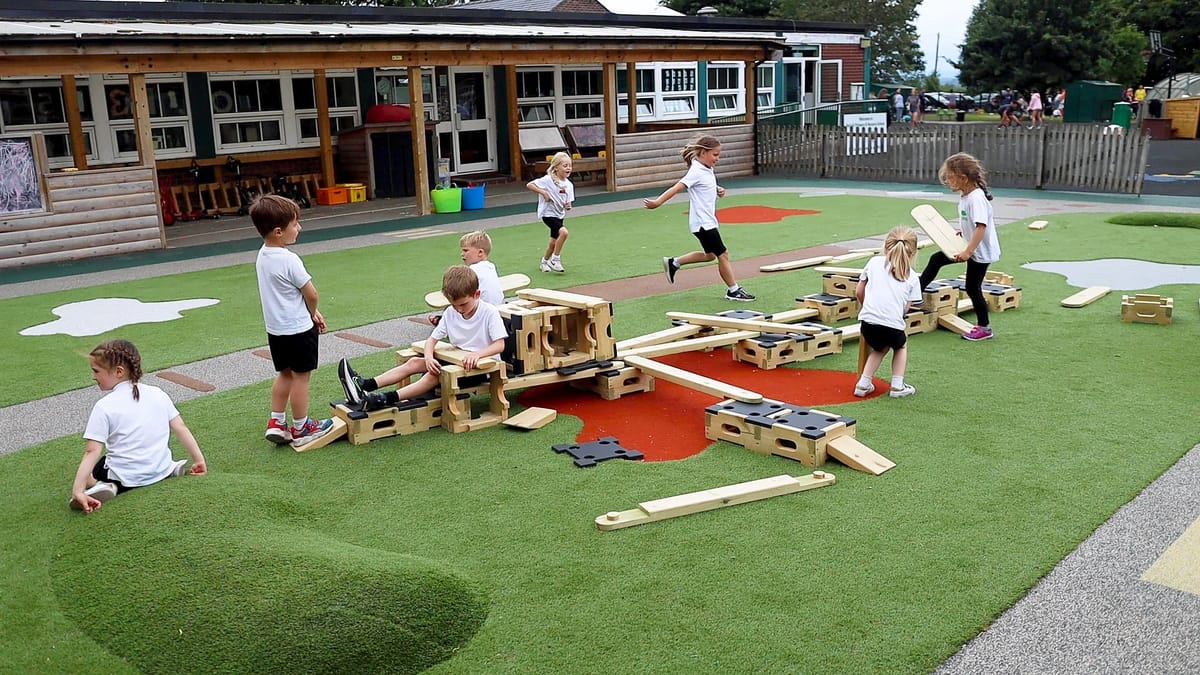
Our bodies too have a ‘set point’ where we’re able to manage behaviour and emotions appropriately. Self regulation is about finding that set point - keeping track of changes in our environment or circumstances, processing information, recognising how we’re affected, and knowing what we need to do to stay close to our own ‘set point’.
Spot the Difference
Self regulation is not to be confused with self control - although related, it’s not the same. Self control is more of a social skill that we use to keep our emotions, behaviour and impulses in line, but self regulation is different. It’s the thing that allows us to manage ourselves in a difficult situation, while still remaining calm and focused.
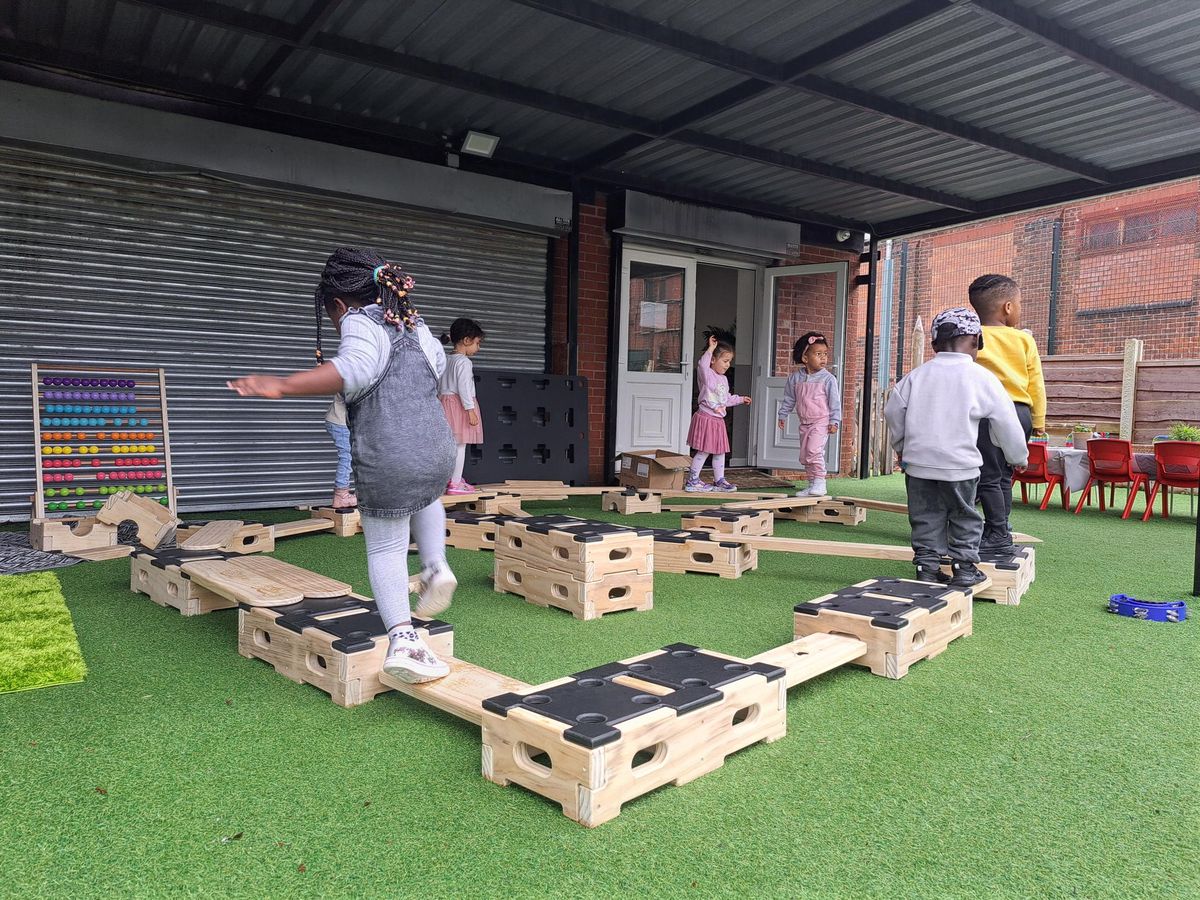
As they get older, children need to learn how to recognise, for example, when they’re upset, and be able to calm themselves. They need to learn how to be flexible when situations and expectations change (such is everyday life), and to form appropriate responses to sensory input. These skills take time to develop, and self regulating can be really tough for some children.
Having seemingly uncontrollable emotional outbursts from time to time can be par for the course when you’re a toddler - but if this continues further into childhood, if a child seems unable to control their behaviour beyond what would be expected for a child of their age, it might be because they have a problem with self regulation.
What is Play Builder, and How Can it Help Children with Self Regulation?
A growing amount of evidence points towards the fact that certain types of physical activity can help children to improve self-regulation - activities that combine relaxed physical movement with mental focus, such as climbing, balancing and engaging in group play. This is exactly what the Play Builder is designed to offer.
Play builder is essentially a development on the idea lots of schools have – using milk crates with loose planks for learning how to balance. Play builder is great for learning how to balance and walk on a plank at height, learning how to use alternate footing, ultimately allowing children to develop into confident and adaptive movers - but of course you can do a lot more with it!
(Ellen is being typically modest here! There’s a great deal more to it, and with a 25 year guarantee it’s perhaps just ‘a little’ more robust, versatile and full of play value than a milk crate and a loose plank!)
Our Play Builder is an open-ended, educational indoor/outdoor play resource for EYFS, KS1 and KS2 children. It’s brimming with opportunities for children to have fun together building whatever they choose, and using their creations for physical play - solving problems, using imaginations, experiencing physical, heavy-work construction, and developing self-regulation techniques as they go.
Once children have built their own creations - an activity trail, or a themed play station such as an imaginative ‘boat’ or ‘train’ - they’re free to move around and enjoy playing on them as they like!
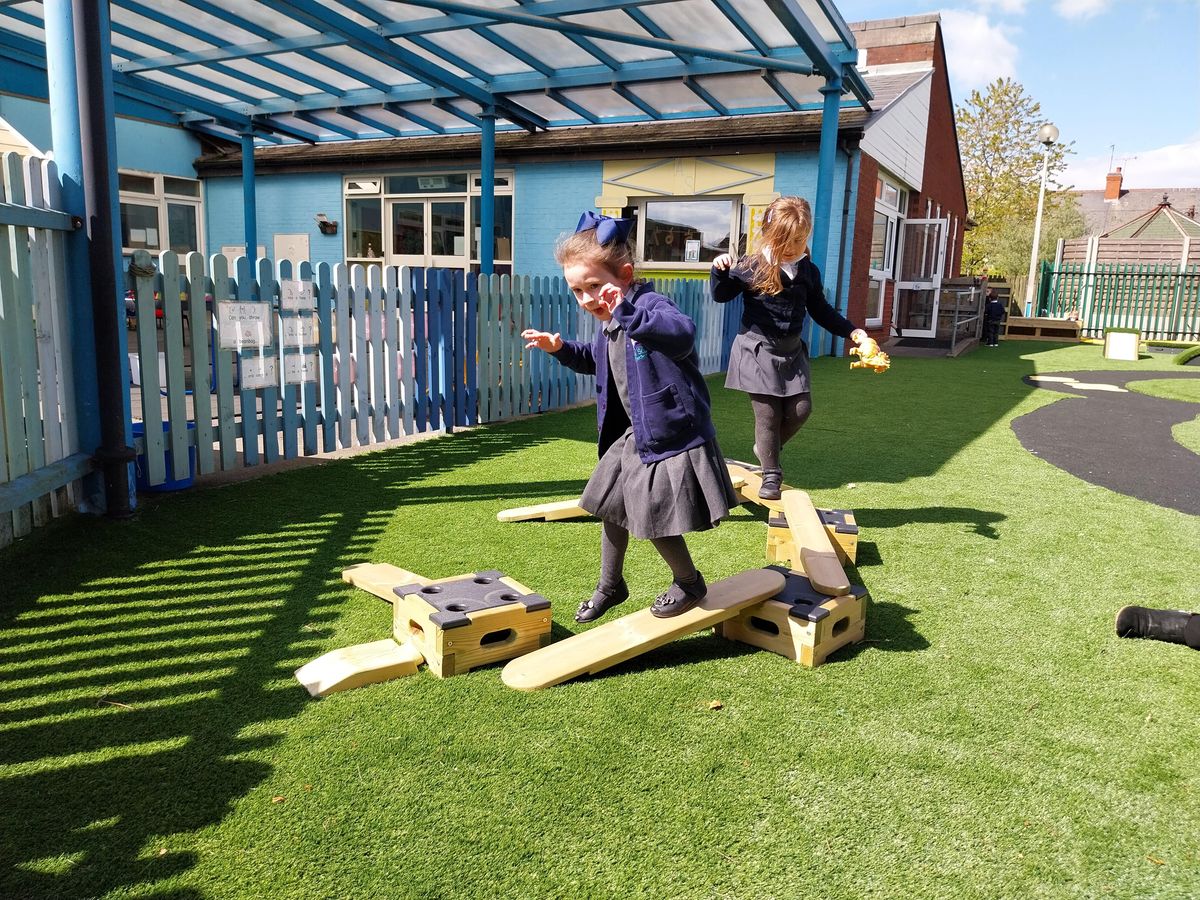
Children lift, position and join together the following loose parts to build their own designs for gentle physical play:
- Blocks (square and rectangle) stackable vertically or following an offset pattern. They can be joined at right angles for den-building.
- Planks - can be plugged into the sides of the blocks, creating lower balance beams, angles, ramps and trails. Longer planks are narrower, designed for more confident balancers, whereas the shorter planks are wider and ideal for building confidence.
- Ramps that can be plugged into the blocks to create secure entry/exit points for trail building.
- Interlocking Lids to create platforms and joins
- Water Topper Blocks - use the same stacking mechanism with an additional feature for exciting, experimental, sensory water play! Grooves within the blocks hold water channels for children to run water, balls etc down them.
The Play Builder is available in 5 different sets to suit different class groups and budgets: The Apprentice, The Technician, The Architect, The Engineer and The Engineer with Role Play Additions.
Building a Sensory Diet with Play Builder
With opportunities to experience appropriate physical activity on a regular basis, children can become much better able to control impulses, feel calmer, and subsequently remain attentive when situations where they might otherwise struggle, present themselves.
The key is to provide a varied and balanced sensory diet, where children can work with their visual, vestibular and proprioceptive senses. The multi-use possibilities and open-endedness of Play Builder really helps schools to achieve this.
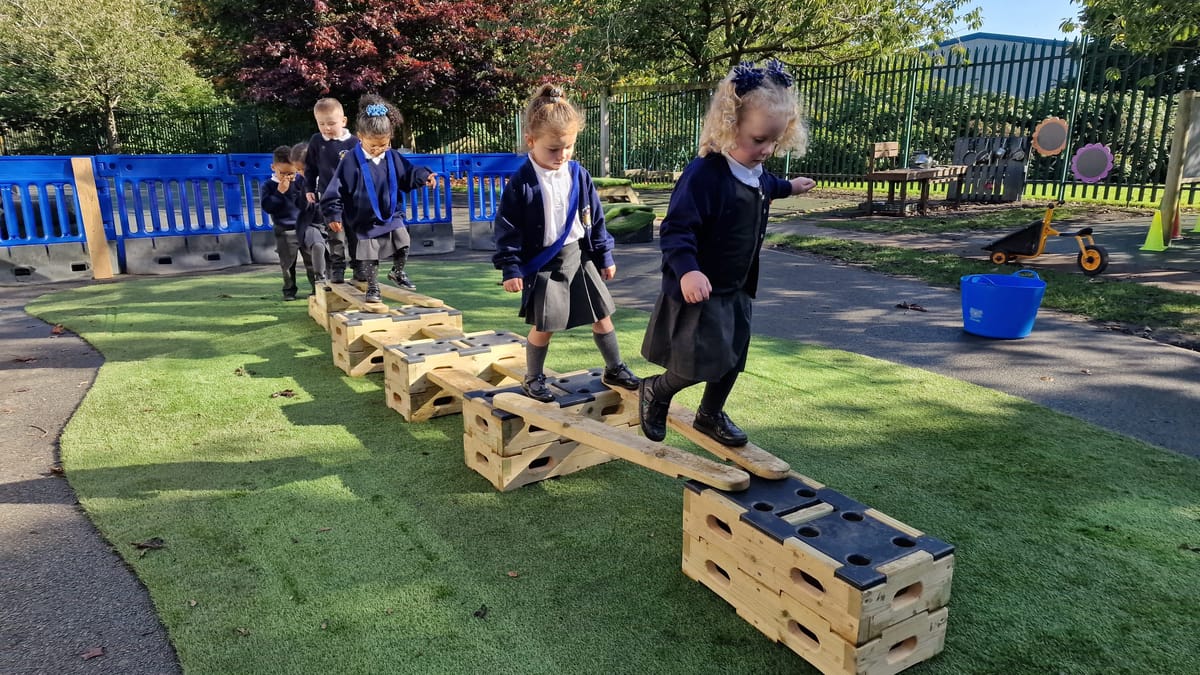
Some of the wonderful schools that we work with, who use the Play Builder regularly during playtimes, have told us how all age ranges, from 5 through to 11, have been fully engaged in using the different parts to create various routes to walk and climb - and that this has had a profound and significant impact on engagement levels and self regulation.
They have seen an improvement in balance and coordination in younger pupils, who as well as building their own themed play stations, enjoy playing on trails set up for them by teachers to provide a specific level of challenge. At the same time, older children have enjoyed building more complicated ‘daredevil’ balance trails, and doing the heavy work of moving the items to help with their own breathing control and regulation.
Moving around a Play Builder trail is ideal for children who like to enjoy repetitive motion and climbing movements to help with their self regulation. This type of activity is particularly valuable for children who have sensory processing difficulties, ADHD and/or Autism.
We have seen children using the circuits they have set up to enjoy walking a continuous loop, developing their balance, core strength, spatial awareness and confidence in movement, as they use this repetitive movement to help regulate themselves.
When they eventually become tired of one circuit, they can redesign and change the layout however they like, varying the level of physical challenge with different ways to balance, different grades of incline and distances to travel.
A child’s self-regulation abilities will develop gradually, at their own pace, and it’s important to take into account what milestones are appropriate for an individual child.
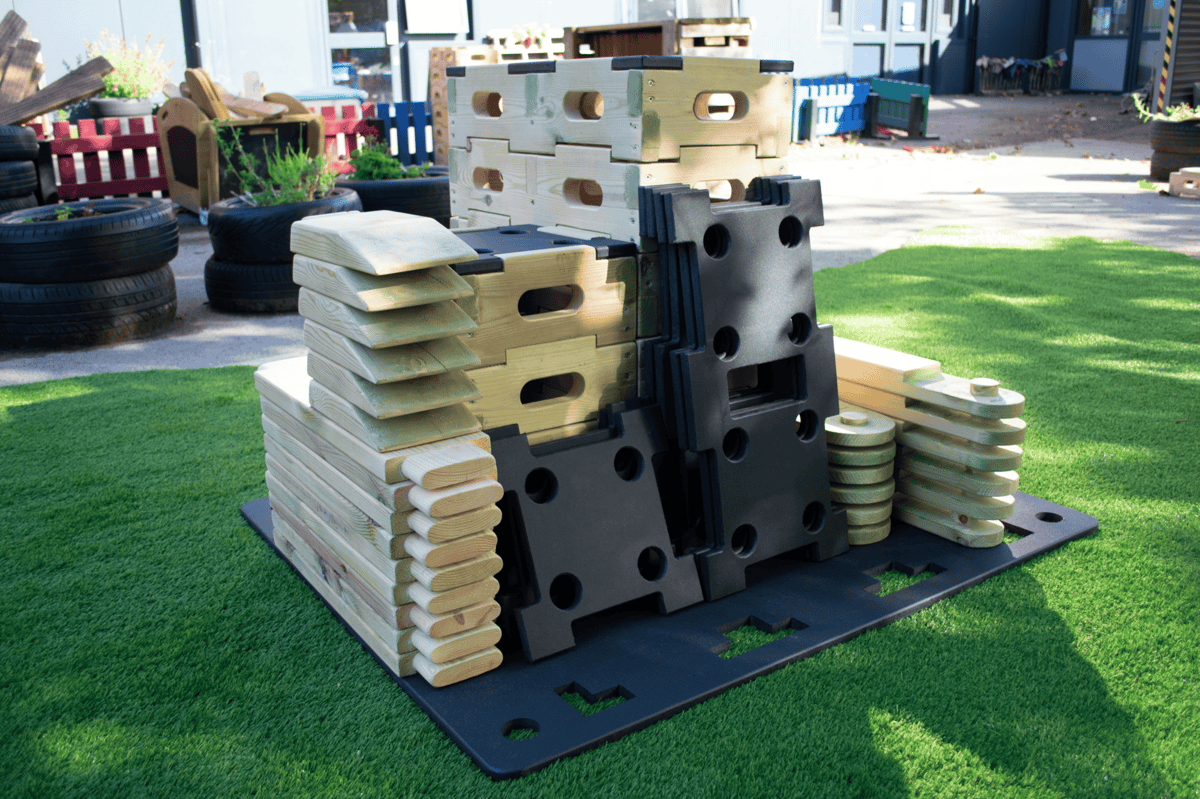
Providing resources such as the Play Builder for children to engage in self-regulating activities when they need to, especially where a child struggles with self-regulation (and is faced with the additional challenge of having to work that extra bit harder to learn how to regulate themselves), can make a hugely positive difference to their everyday life.
Pentagon Play work in conjunction with teaching professionals to develop products that meet children’s learning and developmental needs. Our experienced team will work with you to design outstanding spaces that perfectly suit your learning and play requirements. Contact us today for free, expert advice!
